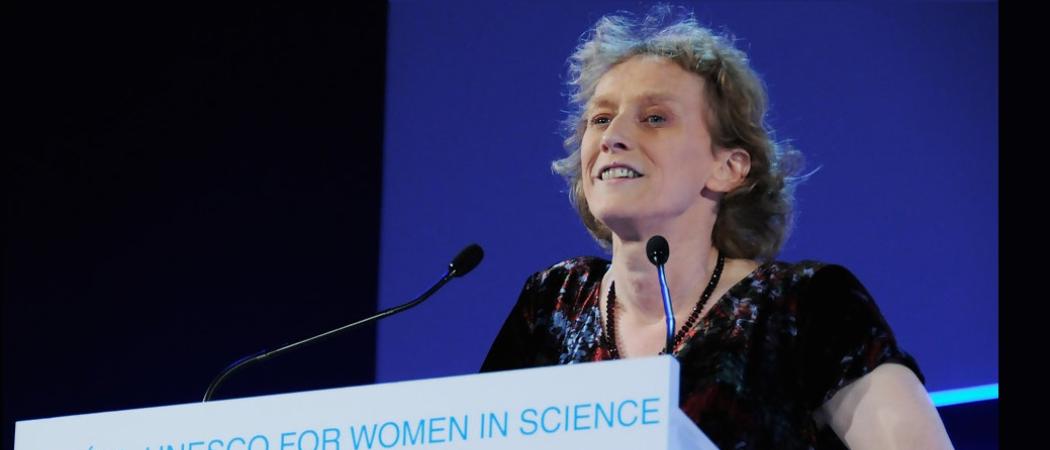The three-year Swiss-EU dispute over immigration should not leave ‘any doubt’ that EU will make no concessions to UK in Brexit talks, says ERC Council member, Athene Donald

Photo: Francois Durand/Getty Images Europe
The swift move by Brussels to cut off science funding to Switzerland when it proposed to impose controls on the free movement of EU citizens shows the determination of the EU27 to do the same to the UK if it does not allow free movement after Brexit, warns Athene Donald, a member of the European Research Council (ERC) governing body.
Donald, who is professor of experimental physics at Cambridge University, Master of Churchill College Cambridge and a leading scientific voice in the UK, was reacting on Monday to a recent warning from the Commission that the UK would “cease to be eligible to receive EU funding” or may be required to leave some projects without a new bilateral science agreement after Brexit.
Although UK-based researchers are still eligible to apply for EU grants, and the UK government has pledged to guarantee funding for UK applicants who submit proposals before March 2019, the official Brexit date, the notice states that “the eligibility criteria must be complied with for the entire duration of the grant.”
“It was an explicit warning shot,” said Donald in a lecture at the Cambridge University Festival of Ideas on ‘UK research in troubled political times’ published on the university's website. “No one should be in any doubt that the EU is prepared to enforce this ruling. It did it before when Switzerland’s own referendum meant that workers from Croatia were not freely able to enter the country, and it took quite a lot of fudging to resolve that.”
The row over immigration between the EU and Switzerland, which is the most successful non-EU country at winning grants in Brussels, started in 2014 and lasted almost three years. Swiss researchers were initially locked out of Horizon 2020 competitions, including the ERC, but were later invited to submit proposals for competitions, so long as the Swiss government covered their funding.
The UK has prepared for a similar guarantor-arrangement. A UK government statement issued last Friday said, “Even if UK partners cannot continue to receive funding from the European Commission, the UK government has guaranteed funding for successful bids submitted by UK participants before departure, including those that are successful afterwards.”
What the Swiss dispute revealed is the stubbornness of Brussels on free movement rules. There is a hard task ahead for a British government that has promised immigration curbs, said Georg Lutz, professor of political science at the University of Lausanne.
“Our country thought, ‘oh well, we can limit immigration and the EU will accept it’. But it didn’t play out like that. The EU held a consistent line before, during and after the negotiations that [the idea] was unacceptable. They didn’t blink; they didn’t want to create a precedent for other countries,” Lutz said.
A compromise was eventually found in December 2016. “It would be nice to think that a similar degree of pragmatism might apply to save the UK’s scientific research bacon, but it isn’t clear that this will happen,” Donald said.
Donald, one of 22 top scientists in Europe responsible for setting the ERC's scientific direction, has repeatedly warned about the impact of Brexit, calling it “extremely bad for science.”
Special designation for researchers
Finding agreement on a special free movement deal for scientists, but not the rest of the population, would be “tricky”, if not unworkable, said Donald.
“Immigration is an emotive subject, and it is hard to envisage a scheme that enabled scientists to travel across EU borders freely while preventing other workers from sharing that luxury,” she said.
Martin Selmayr, the chief of staff to the EU Commission President, has previously said the proposal would not be accepted.
Restrictions on the ability of scientists to come and go will harm UK science, Donald said. “Science thrives on easy mobility... It has to be expected that the UK’s leading role in science, where we punch far above our weight, is likely to be significantly and negatively impacted by the loss of easy researcher mobility.”





 A unique international forum for public research organisations and companies to connect their external engagement with strategic interests around their R&D system.
A unique international forum for public research organisations and companies to connect their external engagement with strategic interests around their R&D system.